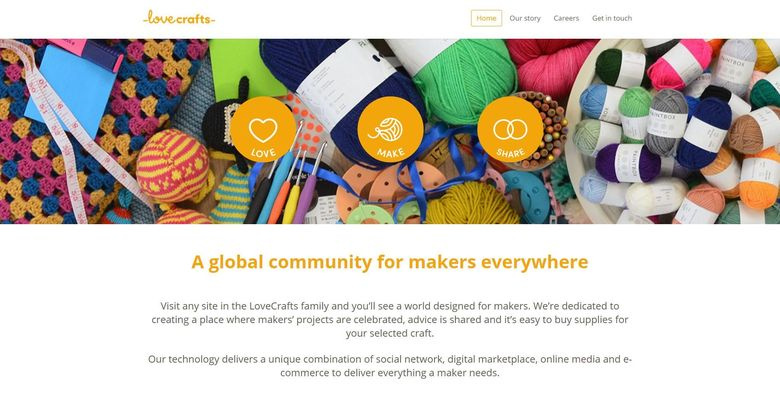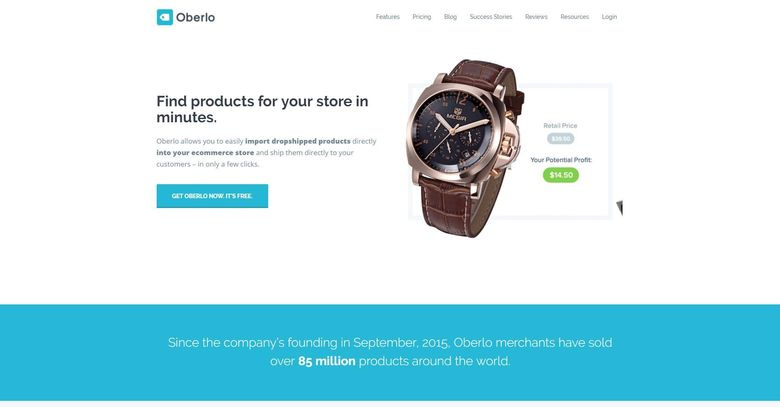Startup of the day (June 2017)

Continuing the Startup of the Day digest series, today I present the most interesting projects for June. If you want to get acquainted with the rest, then I ask in my blog. Entries are available on Facebook , ICQ and Telegram .
Yext
Yext helps businesses be better represented on the maps. Ideally, as soon as a bank opens a new branch, it should immediately appear in dozens of places: from obvious Google and Yandex cards (Google and Bing in American realities) to the local counterpart of banki.ru and, for example, the Western Union website. In reality, no one, of course, deals with dozens of places: everywhere, except for the largest and most popular sources, incorrect or incomplete information remains for a long time; customers go the wrong way, money is lost.

And then Yext enters the scene. For amounts starting at $ 4 per week, it gives businesses a single point of management for their locations on all relevant sites: with one click, and the data is updated everywhere. Alone, this service does not work: a greedy buyer could turn it on only for some changes, but for most customers this event is quite rare, you can noticeably save money, so the startup “at the same time” offers constant services. For popular networks, this is monitoring reviews on all those sites on which Yext tidies up, and for small ones who are not relevant, there is a geo-page function. Beautiful, correctly laid out and SEO-optimized pages about each location are once integrated into the main site and then managed from a common dashboard along with external resources.
Now the startup has more than 40 thousand customers, revenue for one hundred million dollars a year, an IPO passed a couple of months ago, the company's capitalization is more than a billion. Probably never will come to Russia, it’s quite possible to do your own thing.
August home

American August Home makes electronic door locks for ordinary houses and apartments, controlled via an application on a smartphone, and this idea is much deeper than it might seem: everything related to delivery is now in trend, and the project is largely about it. The main promoted bonus is the lack of the need to meet couriers and other people who really need a place, not a person. The door can be opened from anywhere where there is Internet access, no need to wait for anyone. The courier can come whenever he is comfortable, and you can be where you are comfortable. The eight-hour delivery interval is becoming quite comfortable, logistics services are getting cheaper, GDP is growing, splendor ... A resident of Russia may have a question about theft, but in the States the answer is so obvious that even promotional materials are not mentioned: on the one hand, there’s nothing to steal in modern apartments, but on the other hand, the courier at the entrance is photographed where he came from - more or less known. A possible crime is just perfect for disclosure, people are not so idiots.
Other possible scenarios seem far more far-fetched. Well, yes, you can take the key from the ex-boyfriend at the touch of a button and be sure that he did not make a duplicate. But to take care of such a situation in advance and put a special lock for this? .. Is that true in apartments for daily rent. Or, for example, the opportunity for a cleaning lady to enter the house only on Wednesdays from 10 to 12 - and why? Because we can? And logging of inputs and push notifications about them seem generally harmful to normal family life.
As for the risk of a dead phone, it is solved as simply as possible: the lock can be opened not only from the application, but also by entering the code. A lost phone seems less dangerous than a lost iron key: reprogramming codes is much simpler and cheaper than changing a lock. But hackers in the future will in any case be expanse, yes.
If we talk about the current scale, then hundreds of thousands of devices were sold, about fifty million dollars of investments were raised, quite a lot over the four years of the life of a hardware startup.
Grammarly

As far as I can tell, I write in Russian quite competently; regular blog readers, of course, know better, but I have such self-esteem. And the same self-esteem was about the English language: I understood that my texts were very simplified, without complex constructions and vivid idioms, but I thought that there were few obvious errors in them, especially since the browser with Word was rarely emphasized. Ha! It was worth installing a plug-in from Grammarly, and the illusions vanished like smoke.
This is just a text literacy test, but a good one. Grammarly does not check the words in the dictionary, but really knows English (only English) spelling with punctuation, sees missed commas, inconsistent times, incorrect articles, understands that the player must have, not have, and he still sees a huge bunch of different problems. I am ruled in almost every paragraph, despite the fact that, I repeat, standard tools do not emphasize almost anything. It is important that errors are not only noted, but also fully explained. All in all, a really useful application of AI technology.
Technically, Grammarly has three implementation options: a plugin for Chrome / Safari / Firefox / IE, a plugin for MS Office and a standalone text editor. Only the option in the browser seems to work - to change the usual editor, even for the sake of checking English, this is too much, but in Word it somehow breaks the Undo feature via Ctrl-Z (how ?? who programs this ??), which, of course, completely kills the ability to use.
The monetization model, of course, is based on a subscription: only obvious errors can be seen for free, and premium users for about $ 20 a month also get stylistic recommendations in the spirit of “a lot of doesn’t work here, use a lot better.” It pays for this, most likely, a very small percentage of the audience, but with the current 7 million DAU, it should be several hundred thousand people (that is, tens of millions of annual revenue).
The company says that it is profitable, and there were no investments until this year, there was nothing to cover losses, where would they go without profitability. But now they decided to grow faster, they took as much as 110 million dollars in a recent round. I wish them success and thanks for the great product.
Lovecrafts

The easiest way to make a successful online store is to sell a category of goods for which there is a great demand and a large volume of sales offline, but it is poorly represented in existing online stores. The trivialities are required: you just need to find such a category.
The English startup LoveCrafts sells knitting and sewing products via the Internet according to the most common business model, with its own warehouses, the most ordinary logistics and other features of a typical online store. Focus on a single narrow category allowed them to achieve an absolutely endless choice, program convenient filters, and, of course, conduct more targeted marketing. It is significant that even for knitting and sewing, they made two separate sites, although connected by many cross-links, but still different. The target audience naturally likes all this, they buy a lot on LoveCraft.
However, even the position of a specialized store is not guaranteed to be stable: both an arrogant competitor can make a clone, and Amazon will sooner or later get their hands on this niche, and then only price competition remains - and who needs it. Therefore, in order to consolidate its current advantage, LoveCraft wants to be not only a store, but also a community and a market place. Since he sells goods to creative people, let them share their creativity through his platform - should this be convenient?
For the sake of money, authors can upload schemes and designs invented by them to the site and sell them to less creative users. If you want fame and respect, and not income, then the "community" section serves for this: you can exhibit your works and like other people there.
Additional functionality does not bring LoveCraft money directly, they don’t even take a commission for the sale of schemes, but it increases user loyalty, and journalists like it. However, if the community is really actively starting up (not yet), you can come up with a lot of different monetization.
The English startup market took almost no investment, for the sake of the American, it raised about $ 30 million and now in the United States about half of its business. In April, there was another round of 33 million - they want to organize new categories and enter new countries.
Oberlo

The idea behind this startup is direct resale automation with AliExpress. An Internet businessman with his Shopify account connects to Oberlo, selects in the web interface those products from AliExpress that need to be displayed on a new platform, and voila, the store is ready. It remains only to correct the descriptions in the desired language and set the rule for new prices, +20 or +50 percent to the original ones, for example. Anyway, it’ll stay cheap.
When the end customer orders something on this storefront, Oberlo will automatically create and pay for the order on AliExpress immediately with the final address. If something changes on the product page on Ali, the price increases or the product disappears altogether, then Oberlo will correct the showcase. The store owner can only attract customers and deal with claims: disputes, alas, until they are automatically proxied.
In addition to pure arbitrageurs with the approach of “wrote beautiful descriptions, set a margin of 100%, purchased advertising in Target, profit,” such a model can quite logically be used on thematic sites: why not sell your audience a relevant selection of goods. Probably, with a reasonable difference in price, people will not even be too indignant if they know the whole story. In the end, they made a choice, it is also worth something.
In addition to the obvious SaaS subscription and potential use of AliExpress’s marketing budget, Oberlo also charges a fee for some of the products. The idea is that in addition to ordinary stores with Ali, they in the same mode offer to resell the goods of certain "trusted" suppliers working directly with Oberlo. When setting up export, this part of the assortment is always slipped higher, and, of course, regularly gets into the final windows. I don’t know how really direct contracts are: it would be very beautiful and quite consistent with the spirit of the project if “ordinary” goods with Ali with altered descriptions and increased price would be called “verified”.
We came up with this wonderful model very close to Russia, in Lithuania. The startup was recently bought by Shopify for $ 15 million.
